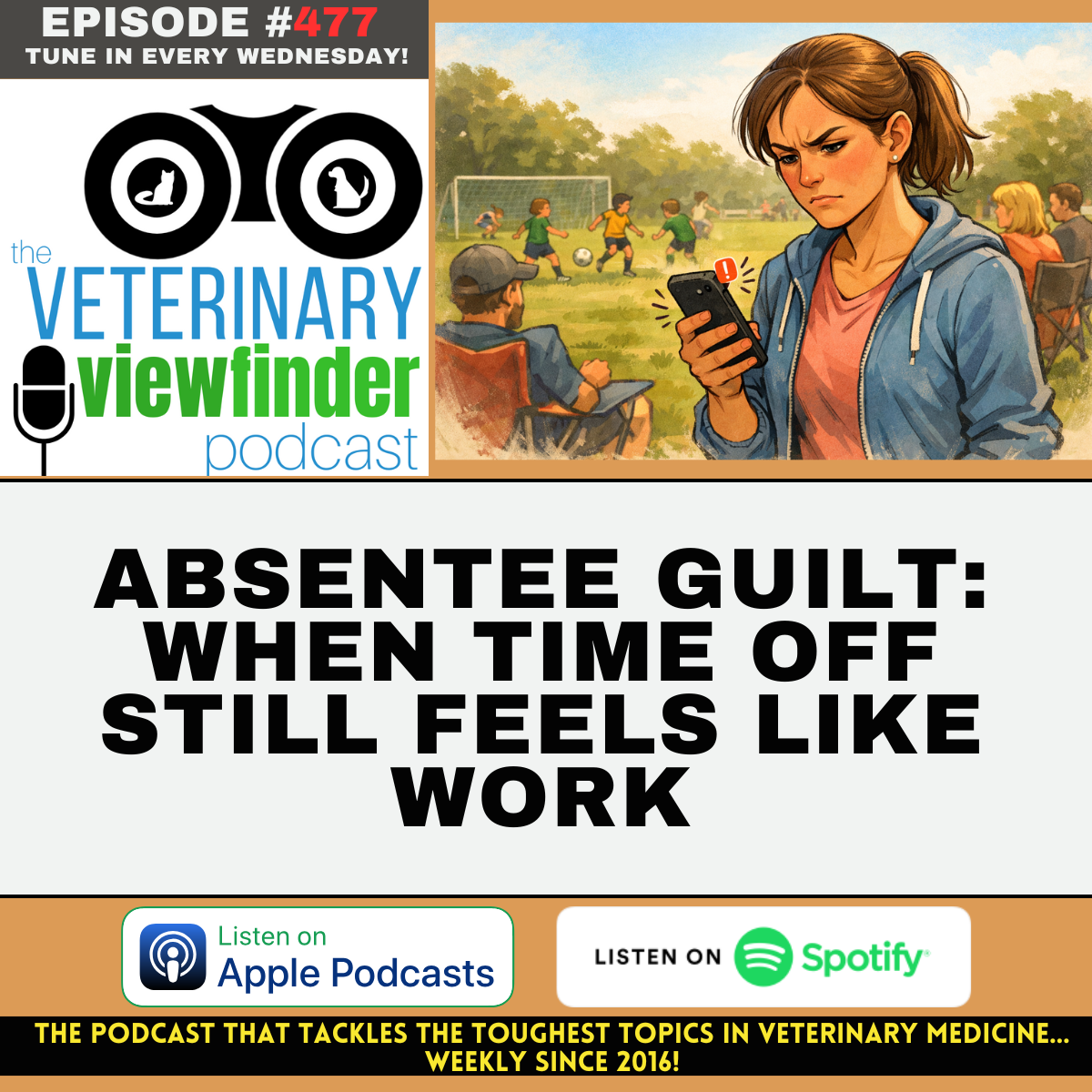
The Veterinary Viewfinder Podcast
Dr. Ernie Ward and Beckie Mossor, MPA, RVT, have co-hosted their award-winning weekly veterinary podcast since 2016. Each week, they “tackle the toughest topics in veterinary medicine,” highlighting controversial issues and trending news, introducing veterinary key opinion leaders and provocateurs, and offering solutions to the myriad challenges facing the veterinary profession.
Listen to the Latest Podcast
Latest Podcast Episodes - Click to Listen
You Need a Vacation! How to Set Work Boundaries When You Take Time Off
We talk a lot on the Veterinary Viewfinder about the importance of self-care and wellness, including taking time off for yourself. Even though we may escape our veterinary clinics from time to time, how to we truly disconnect from the incessant text questions, prescription approvals, and myriad of other interrupters during “time off?”
This week co-hosts Dr. Ernie Ward and Beckie Mossor, RVT Maher their tips and advice for setting boundaries when taking time off work. Beckie shares her recent vacation experience and how she dealt with requests while she was celebrating her 10-year wedding anniversary.
This episode is a must-listen for anyone who manages or owns a veterinary practice. As Dr. Ward says, “Respecting time off begins with leadership and leads to workplace culture.”
If you know someone or are struggling yourself with “time-off guilt” or unsure how to disconnect without missing out or letting down your team, this episode is meant for you!
Viewfinders, thank you again for your loyal listening and helping us reach tens of thousands of downloads each month! 200!!
How do you prepare for vacation or taking a long weekend? Do you have “time-off guilt?” We want to hear from you!
Has COVID-19 Made Veterinary Clients More Angry?
Veterinary clinics around the country are reporting more confrontations with angry pet parents. This week, we dive into why this may be happening and what your veterinary team can do to help.
The COVID-19 pandemic continues to challenge veterinary professionals around the world. On disturbing trend is increased conflict with frustrated and angry, sometimes violent, clients.
This week, hosts Dr. Ernie Ward and Beckie Mossor, RVT tackle why veterinarians may be seeing more angry clients and steps to de-escalate a tense client interaction.
Viewfinders, this is an excellent discussion on a wide range of topics and tactics concerning conflict resolution. Please share it with your team or colleagues you think could use a little help or inspiration.
If you have a tough topic you’d like us to tackle, let us know on Instagram (@VeterinaryViewfinder) or Facebook (/VeterinaryViewfinder)!



